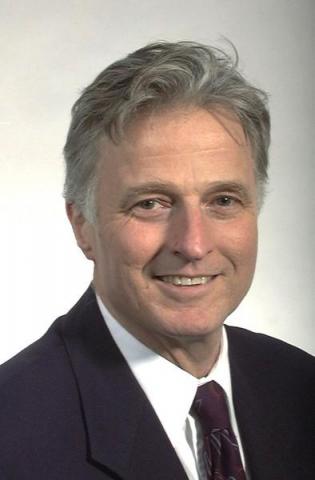
Lawrence Schell, director of the Center for the Elimination of Minority Health Disparities at the University of Albany at State University of New York, will speak as part of the Wittman Speaker Series at Indiana State.

Lawrence Schell, director of the Center for the Elimination of Minority Health Disparities at the University of Albany at State University of New York, will speak as part of the Wittman Speaker Series at Indiana State.
Lawrence Schell, director of the Center for the Elimination of Minority Health Disparities at the University of Albany at State University of New York, will speak March 23 as part of the Wittman Speaker Series at Indiana State University.
His talk, entitled "Health Disparities in the U.S. and the Special Case of American Indians," will be 6-7 p.m. in room 12 of the Science Building, followed by a roundtable discussion from 7 p.m. to 8 p.m. The event is free and open to the public.
Earlier that day, Schell will lecture to the introductory environmental science class about pollution and general childhood health.
A professor in the departments of anthropology and epidemiology and biostatistics at the University of Albany, Schell's environmental health research focuses on the physical growth and development of children, especially the effects of pollutants on disadvantaged populations.
"(Schell) is a pioneer in looking at pollutants in the environment and how they affect children. He's looked at this in newborns, taking cord blood and looking at the level of pollutants in the mother's blood to see how it impacts infants," said Shawn Phillips, professor of anthropology at Indiana State. "What we know from environmental studies is that poor neighborhoods tend to have higher burden of pollutants - lead, PCPs - so (Schell) has been looking at the consequence of pollutants at low levels. We already know that pollutants at high levels are bad, but we've lived in an industrial society for almost two centuries and what we don't know how the pollutants are low levels are impacting us."
Schell's recent publications include a paper on the effects of polychlorinated biphenyls and lead on the timing of human sexual maturation, the role of maternal diet and body composition on the transfer of lead from mother to fetus, influence of infant diet on the infant's acquisition of environmental lead and growth and development of Akwesasne Mohawk adolescents. He also has published several reviews on urbanism, pollution and child health.
"I think the lead in the water in Flint, Mich., is an example of a low level pollutant exposure that is still higher than recommended. We don't really know if there is a threshold and exposure could possibly have effects at any level," Phillips said. "The Flint, Mich., case is an example of a problem that is likely to happen more across other communities because it's expensive to revamp old pipes and water systems. But what's more expensive - those fixes or children's exposure to pollutants?"
Now in its second year, the Wittman Speaker Series is funded with a contribution from Laura and Jim Wittman. Laura Wittman, an alumna of the department of earth and environmental systems at Indiana State, wanted to bring to campus guest lecturers focused on subjects such as archaeology, anthropology, liberal arts, current topics in science and student success.
"We're lucky when we get a world-renowned, prominent researcher to come to campus," Phillips said. "When (Schell) started his research decades ago, he just suspected that problems were out there. As his work progressed, he and other scientists are showing that these pollutants are in the environment."
Photo: https://photos.smugmug.com/Other/Media-Services/Submitted-Photos/Staff-Uploads/i-ZBmc2Ft/0/703477ea/L/LSchell-L.jpg - Lawrence Schell
Contact: Shawn Phillips, professor of anthropology, Indiana State University, shawn.phillips@indstate.edu
Writer: Betsy Simon, assistant director of media relations, Office of Communications and Marketing, Indiana State University, 812-237-7972 or betsy.simon@indstate.edu